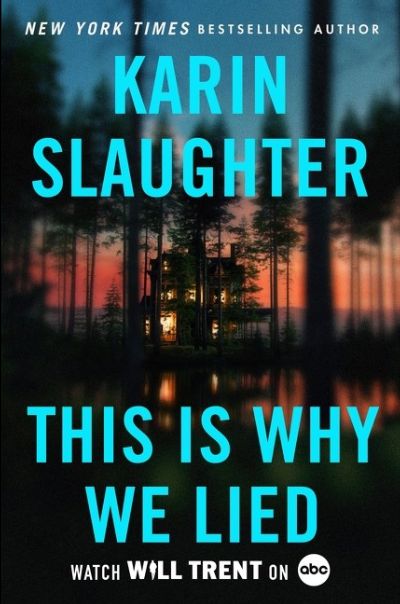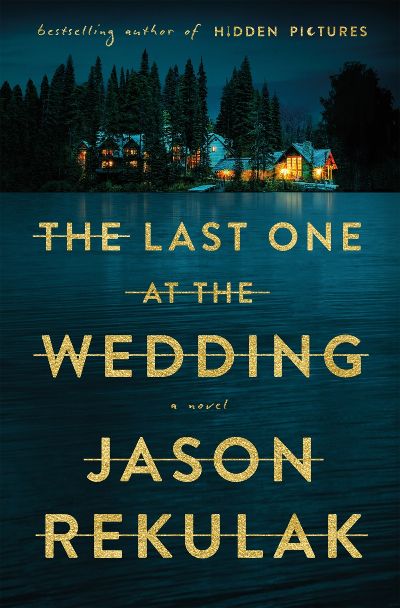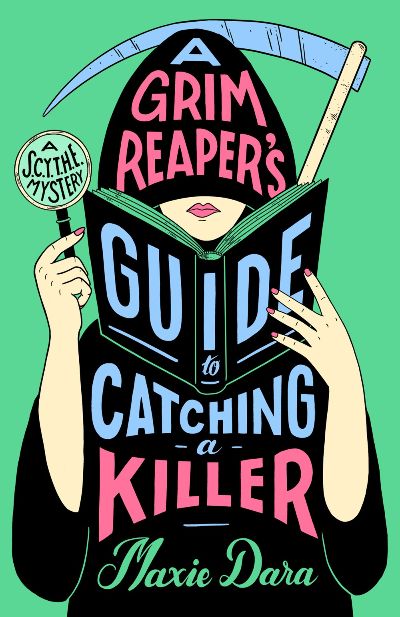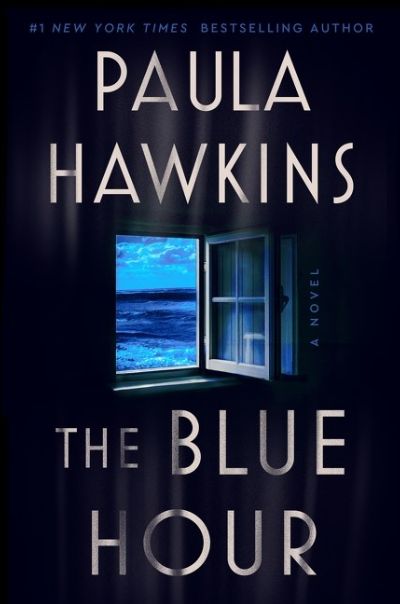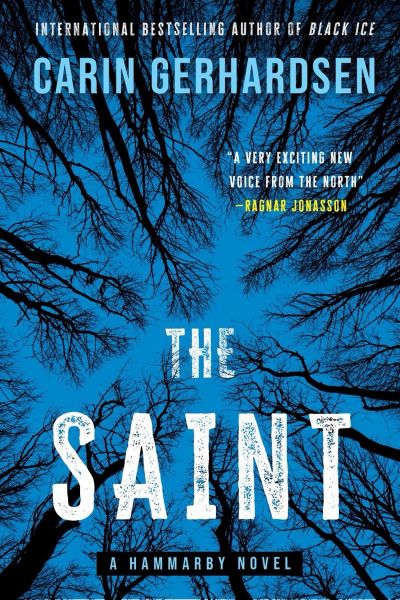Will Trent and Sara Linton’s honeymoon gets cut short in Slaughter’s latest page-turner. Will surprises his new bride with a trip to an idyllic lodge isolated from people and technology. At first, it’s lovely, and they tell the other guests that Will is a mechanic and Sara’s a teacher. That ruse dissipates quickly when the manager of the lodge, Mercy, is stabbed to death, and Will accidentally impales his hand on the knife. Everyone staying there is an immediate suspect, whether it’s the other guests with secrets or Mercy’s family, who all have a shady past. Verbal and physical abuse is as common as drinking water to these depraved individuals, and all of them had a motive to kill Mercy. Will finds a phone connection and gets his partner at the GBI, Faith, to help discover the true killer. The ABC show Will Trent was renewed for a third season, to premiere in January 2025. While fans wait for the show to start again, they can dive into this intense, disturbing, and fascinating story of depravity, betrayal, and hope. The surprise ending shocks and satisfies, and the next Will Trent novel cannot come fast enough.
Review
I’m going to call it like it is: this is one of the best books of the year. Frank Szatowski—widower, UPS deliverer, and all-around good guy—gets a call from his daughter, mid-twenty-something Maggie, inviting him to her wedding in rural New Hampshire. The two have been estranged for several years, so this invite is a big deal for Frank, who brings along his sister (she’s practically Maggie’s mother). But from the moment they arrive at the incredibly lavish estate, nothing is what they expect. Maggie, it turns out, is marrying into a vastly rich tech family—think the Dells—and Frank’s attempts to connect to Maggie’s new family only succeed in making both him and the family members increasingly suspicious. Son-in-law Aidan Gardner is a recluse, accused by the locals of murder; Mom is hiding up in the main house, a drink- and drug-addled shadow of a woman; Dad is a complete control freak who enforces his own time system (seriously); and Maggie is the cheerleader, backing the families’ crazy decisions. Frank’s dialog—both internal and external—is one of the joys of the book, and Frank keeps discovering new forms of evil, like so many nesting Babushka dolls, as he investigates the Gardners. But will he be able to convince his daughter to leave? Strong characterization, a fascinating environment, and a good wallop of suspense makes for one compelling read. Relish it.
From the sexually explicit frescos of ancient Pompeii to today’s risqué sites, pornographers have always embraced the latest technology to create and distribute their erotic materials. In 1916 Los Angeles, the new tool was the motion-picture camera. Phillips’s noir novel offers a bawdy, violent, funny, and affectionate fictional take on how the “blue movie” industry developed in the shadow of a budding Hollywood. Years after the events of Cottonwood and Hop Alley, photographer Bill Ogden, now in his 70s, has opened a portrait studio in the City of Angels. He is assisted by his granddaughter Flavia, who came to California for a fresh start after fatally bludgeoning (in self-defense) her abusive husband, and naive 20-year-old Henry Seghers, who fled the coal mines of West Virginia. Bill’s business is legit but he occasionally takes stereoscopic stills of naughty sapphic/homosexual productions overseen by George Buntnagel, a gay director moonlighting from Provident Studios, and his lesbian wife, Irene. Revolving around these well-drawn central characters is a colorful supporting cast: aspiring actress Purity Dove-turned-film star Magnolia Sweetspire; homicidal ex-con Ezra seeking his missing family; Ezra’s wife, Trudy, who supports her two children by working in stag films; comedian Tommy Gill, who is not as funny as he thinks he is; and ex-postal inspector Melvin van de Kamp, who is desperate to break into the adult-movie business. Phillips’s narrative gradually connects these diverse personalities in a series of fast-paced alternating scenes until they collide in a violent Day of the Locust climax. With its high body count (at least eight murders are committed) and ribald language, this scandalously juicy tale of early Hollywood will appeal more to Fatty Arbuckle devotees than demure Mary Pickford fans.
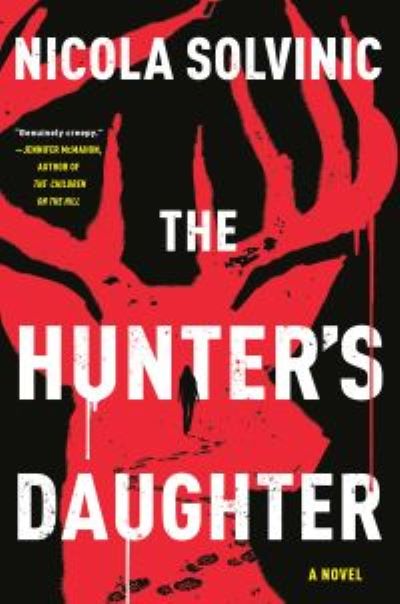
Subterfuge and supernatural elements infuse this dark, absorbing debut. Our protagonist is Midwestern police detective Anna Koray, who’s had a relatively staid career until she makes the mistake of confronting a violent perpetrator without backup. She kills him, but is shot herself in the process. When recovering, she’s required to undertake counseling; at the same time, she pushes herself into the investigation of a serial killer whose horrifying work resembles that of her father, who years ago was executed for his murder of multiple women as sacrifices to a forest god. Both Anna’s colleagues and the doctor she’s in a burgeoning relationship with have no idea that she spent her childhood in thrall to the Forest Strangler. Anna herself doesn’t even have all the details, which were sealed away in her subconscious by a manipulative therapist whom she now sees for the reverse process, setting in motion an emotional and dangerous roller coaster of unraveling secrets and treacherous confrontations. A cold-case podcaster adds a moral dilemma to the exciting tale—when is it better to leave the truth buried? Readers who enjoy a wilderness thriller, such as Elizabeth Hand’s Hokuloa Road or Paul Doiron’s Dead Man’s Wake, will appreciate this story.
Dead money is slang for wealth that’s held up by a clause in a will, and after Elon Musk-type Trevor Canon is found dead in his San Francisco tech-bro office, investigator Mackenzie Clyde finds that he recently had just such an amendment inserted into his will. A lawyer who now works as a sort of fixer at a venture capital firm, Mackenzie isn’t the most likely candidate to help the FBI with their case, but she’s ambitious and jumps at the chance when her boss wants to know what happened. Investigating Trevor’s associates is much more complicated than it should be. She’s also subjected to more exposed ankles in mens suits than she’d like, not to mention corporate babble like one associate’s drive to “leverage the leader that lays dormant within clients…to manifest a corporate identity in ways they’ve never crystallized” (snort). The FBI agent she works with, a rich kid who bucks the stereotypes of his upbringing, is having none of it, and together the duo relentlessly digs to the center of a technical and political tangle. Get ready for some startling revelations along the way. Lawyer and debut author Kerr was one of the first employees at Airbnb, and his absorption of the BS is our gain.
Middle-aged, mid-divorce (although she is still in love with her husband), and mid-pregnancy, Kathy Valence is a no-nonsense, shoot-from-the-hip type of character. She keeps busy working for S.C.Y.T.H.E. (Secure Collection, Yielding, and Transportation of Human Essences), helping transport the souls of the recently departed on to their next phase, until the soul of one of her clients, hip and happening 17-year-old DJ Conner, gets misplaced. Conner insists he was murdered by someone at S.C.Y.T.H.E., and that it is up to Kathy to track down the murderer and find Conner’s soul. All within forty-five days, or else he’ll become a ghost, destined to wander the Earth (no pressure!). What’s so lovely here are the overlapping needs of the characters. Kathy, whose fears and anxieties hold her back from accepting love. Simone, Kathy’s husband, whose only desire is to be allowed to love Kathy and their baby. And Conner, who wants to identify his murderer, be saved by Kathy, and find the love he missed on Earth. Poignant and pleasing, this successful supernatural mystery will long be remembered.
An excellent standalone that reaches back into Iceland’s history, prying open a past many would like to keep hidden. At the center of the story is criminology student Helgi Reykdal, who is back from studies in the UK and ready to join the Reykjavik police. Helgi is finishing his dissertation, which is focused on the famous murder of a nurse at an old, little-used Icelandic sanatorium some forty years ago. In all, there were six suspects at the sanatorium and two detectives. The case was never truly closed, and Helgi uses his dissertation to quietly investigate the remaining suspects, encountering only suspicion and hostility along the way. It’s a tight cast, and Helgi keeps his inquiry moving rapidly between 2012, the present day action; 1983, when the murder was committed; and 1950, when the sanatorium was home to tuberculosis patients. Despite the seriousness of the story, and some horrific depictions of domestic abuse, Helgi’s passion for Golden Age mysteries lends the novel some unexpected humor and fun. Highly recommended for a large swath of crime-fiction readers.
Like Thoman’s also excellent I’ll Stop the World, this will be a great crossunder, meaning that it’s written for adults but will also find young adult appeal. Also like the previous book, it strongly features the supernatural affecting teenage characters in an authentically written relationship. Madelyn Zhao has moved to East Henderson, PA, to try to find out what happened to her disappeared cousin who worked for a local real-estate developer, an aggressive character who basically runs the town. At her job as choir teacher at a high school, she meets and begins to fall for Alex, the dishy Spanish teacher. We also meet East Henderson teenagers Bas and Angie, BFFs who are now, at Angie’s insistence, ghosthunters. Living with her devastated dad since her mom took off, Angie hears singing in the shower, only nobody’s there. How Madelyn and the teens interact, and the sleuthing they each undertake to get to the bottom of goings on in this sinister-tinged town, are both touching and gripping.
A beautifully rendered story of deceit and ambition, lies and mysteries. Well-known artist Vanessa Chapman lives on an island off Scotland that’s accessible only 12 hours a day, during low tide. When the sea returns, it creates its own, albeit temporary, closed circle. Twenty years ago, Vanessa’s sometime husband disappeared, which was a bit of a surprise, although he seemed to regularly come and go. When Vanessa eventually dies as well, she leaves her estate in the hands of the Fairburn Foundation; young curator James Becker; and Grace Haswell, a doctor who is the executor of Vanessa’s estate, companion of twenty years, and perhaps lover. It’s all antipathy and snark between James and Grace until a discovery comes to light that forces a reexamination of power and ambition. A poignant and thoughtful examination of a life and a death.
The fourth in Gerhardsen’s best-selling Hammarbyeries reveals a horrible history in a Swedish town that on the surface seems to revolve around soccer games, poker nights, and kindness to those less fortunate. The first break in the idyll, and the opening of the book, is the shooting of Sven-Gunnar Erlandsson, a man whom everyone knows as a tireless soccer coach, helper of the homeless, and devoted father. If the investigators begin to think that maybe he’s a little too saintly, well, that’s probably just their long years encountering the worst of society. As the police look in ever-widening circles at the dead man’s family, friends, and acquaintances, it starts to seem like he might have been the only good person around, surrounded as he was by dark secrets that are slowly and shockingly revealed. (Even the last sentence drops in a twist.) Every character, including those who are missing for years, is given a fully rounded personality here, and it’s quite the large cast. Gerhardsen’s masterful plotting takes us around multiple metaphorical corners, possible killers, and surprise victims in her character- and emotion-driven saga. Maybe it’s time to get back into Scandi noir–and you don’t have to have read the previous books in the series to enjoy this one

